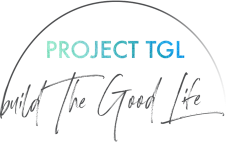“I have a great productivity plan. I just have to actually stick to it.”
When I first started Project TGL, I heard this over and over again. Usually with a wry chuckle. People from all different backgrounds, with completely different working lives, would tell me the same thing.
These people were juggling looming deadlines, feeling completely overwhelmed, barely keeping their heads above water. Everything would be fine, they’d tell me, if they would just get around to actually using that great productivity method they’d heard about.
But they weren’t using it.
The methods were different (ranging from time blocking, to habit-building, to to-do lists), but the attitude was always the same: the method is fine. It’s me who is the problem.
The obvious question
No one seemed to be asking the obvious question:
If a certain method is supposed to help achieve things… but you can’t get around to using the method… doesn’t that make it a bad method?
Sure, you might be really productive if you just stuck to your schedule. But if you find yourself never sticking to it, then maybe creating a schedule isn’t a good productivity method for you.
You might make some sales if you just gathered up some willpower and sat down to do a bunch of cold calls. But if just the thought makes you whole-body cringe so much that you endlessly procrastinate… maybe forcing yourself to do something you hate isn’t the best approach.
It’s not you, it’s me
What’s going on here? Why do people do this to themselves?
After observing this for a while, I came to a conclusion:
When productivity methods don’t work, we don’t question the methods. Instead, we question ourselves.
These methods come with certain types of stories attached to them. Stories that tell us: people who use these methods are good, valuable, productive members of society, and the people who don’t are lazy, hopeless quitters.
Even if you don’t agree with those stories (which, spoiler alert, I don’t), they still play out in your head when you’re not paying attention.
So if you don’t have success with these methods, instead of thinking ‘that method doesn’t work for me’ you think ‘I’m not doing it right’, or ‘I didn’t stick to it long enough’, or ‘I didn’t try hard enough’.
I’ve come up with a name for these methods: I call them blame-reflectors. Whenever you notice that something’s not working, they reflect the blame right back onto you, and you end up blaming yourself.
Once you see this, you can’t unsee it.
And then? You start seeing it everywhere.
Blame-reflectors don’t just exist within productivity.
If you’ve ever got angry at yourself for failing to keep a fitness routine that you aren’t enjoying? That’s a blame-reflector.
If you can’t find the time to post on social media frequently but keep telling yourself that you absolutely must do it for the sake of your business? That’s a blame-reflector.
If you’ve ever tried bedtime mindfulness meditation and still can’t fall asleep, and so you tell yourself that you’re obviously not being mindful enough? That’s a blame-reflector.
They’re not all bad
The problem with blame-reflectors isn’t that they never work. Sometimes they work! Lots of people benefit from fitness routines, social media posting, and mindfulness meditation.
The problem with blame-reflectors is how we respond when they don’t work. When we reflexively blame ourselves and double down on a method that’s not working, we’re missing out on the option to find answers and methods that would actually work.
Because guess what? There’s no such thing as a one-size-fits-all, universally useful method. The fact that one method works for other people (even if it works for most other people) does not actually guarantee that it will work for you.
Blame-reflectors prevent you from seeing other solutions, because they convince you that the solution is always, for everybody, at all times doing more of the blame-reflector.
The logic goes like this:
Struggling to be mindful? Practice more mindfulness!
Haven’t kept to your schedule in weeks? Make an even more rigid schedule!
Feeling unmotivated by your sales calls? Go ahead and book a time to make those calls!
You see the problem, right? … Right?
How can we stop reflecting the blame?
So how do we resist this knee-jerk reaction to double-down on our blame-reflectors, and give ourselves the gift of new solutions?
The trick is to get curious, and ask the right questions.
When you feel the specter of self-blame closing in, here’s some questions you can ask:
- How can I tell if it’s working? How would I know if this method wasn’t working for me? What signs would there be? Are those signs happening right now?
(Bonus points: ask yourself the first question when you first start using the method, before the blame-reflecting starts.) - Can I improve things by tweaking something? What’s stopping me from being successful with this method? Are there any factors that would be easy to change? Is there a similar approach that would work better for me?
(If there are simple, easy changes you can make that would make the method effective, then go ahead and make them!) - Is this method suited to me as a person? Is this difficult or unmotivating because it’s new and I’ve got some things to learn? Or is it difficult and unmotivating because it’s genuinely unsuited to the way my brain works?
- Is this even a good solution in the first place? Does it actually have to be done this way? Is there another method or approach available? Would a different method feel easier for me?
When you ask these questions, new solutions start to present themselves. Solutions that don’t involve blaming yourself and doubling down when things go wrong. Solutions you will actually use and stick to, because they don’t feel icky and difficult.




